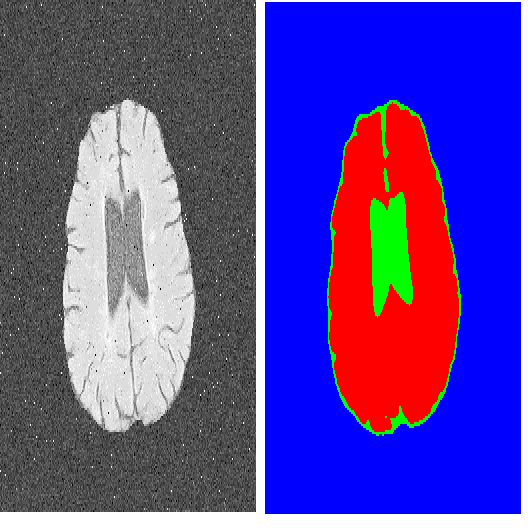The purpose of federated learning is to enable multiple clients to jointly train a machine learning model without sharing data. However, the existing methods for training an image segmentation model have been based on an unrealistic assumption that the training set for each local client is annotated in a similar fashion and thus follows the same image supervision level. To relax this assumption, in this work, we propose a label-agnostic unified federated learning framework, named FedMix, for medical image segmentation based on mixed image labels. In FedMix, each client updates the federated model by integrating and effectively making use of all available labeled data ranging from strong pixel-level labels, weak bounding box labels, to weakest image-level class labels. Based on these local models, we further propose an adaptive weight assignment procedure across local clients, where each client learns an aggregation weight during the global model update. Compared to the existing methods, FedMix not only breaks through the constraint of a single level of image supervision, but also can dynamically adjust the aggregation weight of each local client, achieving rich yet discriminative feature representations. To evaluate its effectiveness, experiments have been carried out on two challenging medical image segmentation tasks, i.e., breast tumor segmentation and skin lesion segmentation. The results validate that our proposed FedMix outperforms the state-of-the-art method by a large margin.
翻译:联合会学习的目的是让多个客户在不共享数据的情况下联合培训机器学习模型,然而,现有的图像分割模型培训方法是基于一个不切实际的假设,即每个当地客户的培训都以类似的方式附加说明,从而遵循同样的图像监督水平。为了放松这一假设,我们提议了一个标签-不可知的统一联邦学习框架,名为FedMix,用于基于混合图像标签的医疗图像分割。在FedMix中,每个客户都通过整合和有效利用从强像素等级标签、弱捆绑盒标签到最弱的图像等级标签等所有现有标签数据更新了联合模型。根据这些地方模型,我们进一步提议了一个适应性加权分配程序,让每个客户在全球模型更新过程中学习一个总重。与现有方法相比,FedMix不仅通过单一图像监督水平的制约而破裂,而且还能动态地调整每个当地客户的聚合重量,实现丰富而具有歧视性的特征展示,以及最弱的图像等级标签。根据这些地方模型模型,我们进一步提议了一个适应性加权的重量分配程序。Meximeximal 将两个部分用于评估其大规模的模型分析。




